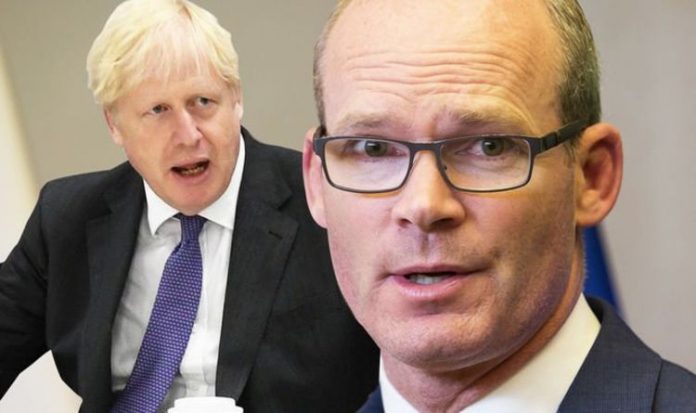Prime Minister Boris Johnson announced today that there would be no deal with the EU unless there is “fundamental change” within Brussels and its approach. German Chancellor Angela Merkel has even pleaded for Mr Johnson not to abandon trade talks. Yet, after months of discussions, Mr Johnson said the UK must prepare itself for a no deal scenario and an “Australia-style” free trade agreement future.
Even so, both parties have suggested they are willing to continue talks — but the EU is waiting for the UK to make the first move, which is looking increasingly unlikely.
Brexit talks have already faced a great deal of disruption after Mr Johnson announced the Internal Market Bill last month, which would undermine the withdrawal agreement.
The proposed legislation intends to give each of the UK’s four countries “unfettered access” to the nationwide market after Brexit.
However, under the Northern Ireland Protocol, Northern Ireland was supposed to follow the same EU trade rules as the Republic of Ireland to prevent a hard border cropping up between them.
To respect the Good Friday Agreement, a customs border would be put down the Irish Sea instead, according to the Protocol — a scenario which will be scuppered if the new bill passes into law.
Even before the Internal Market Bill was announced, Ireland’s Foreign Affairs Minister, Simon Coveney, claimed there was significant distrust between the two sides.
Speaking in May this year — back when he was Tanaiste — Mr Coveney said: “I think the really tricky area will be around customs and I think there will be a lot of sceptical people in the EU, when they hear the British government saying there will be no new physical infrastructure around customs.”
Speaking to RTE’s Six One News in May, he said the withdrawal agreement meant the EU would be entitled to have a presence in Northern Ireland after Brexit.
READ MORE: Micheal Martin ‘keen’ to make White House trip after US election
Mr Coveney also said that he was confident an agreement could be reached between the EU and the UK over implementing the protocol and creating an EU-UK trade deal without tariffs.
However, Mr Johnson refused to extend the transition period’s deadline earlier this year, meaning the UK will finally leave the bloc with or without a deal on December 31.
Earlier this month, Mr Coveney also said that he believed the Internal Market Bill was a tactic which had backfired for the Government.
He claimed the attempts to push the legislation through marked a “monumental failure of politics and diplomacy”.
The Irish Foreign Affairs Minister hit out at Westminster and said if the UK allowed the issue to be escalated to the European Court of Justice it would be a “folly”.
The EU has already launched a legal case against the UK over the bill which could lead to hefty fines imposed on the Government — but the case could take years.







